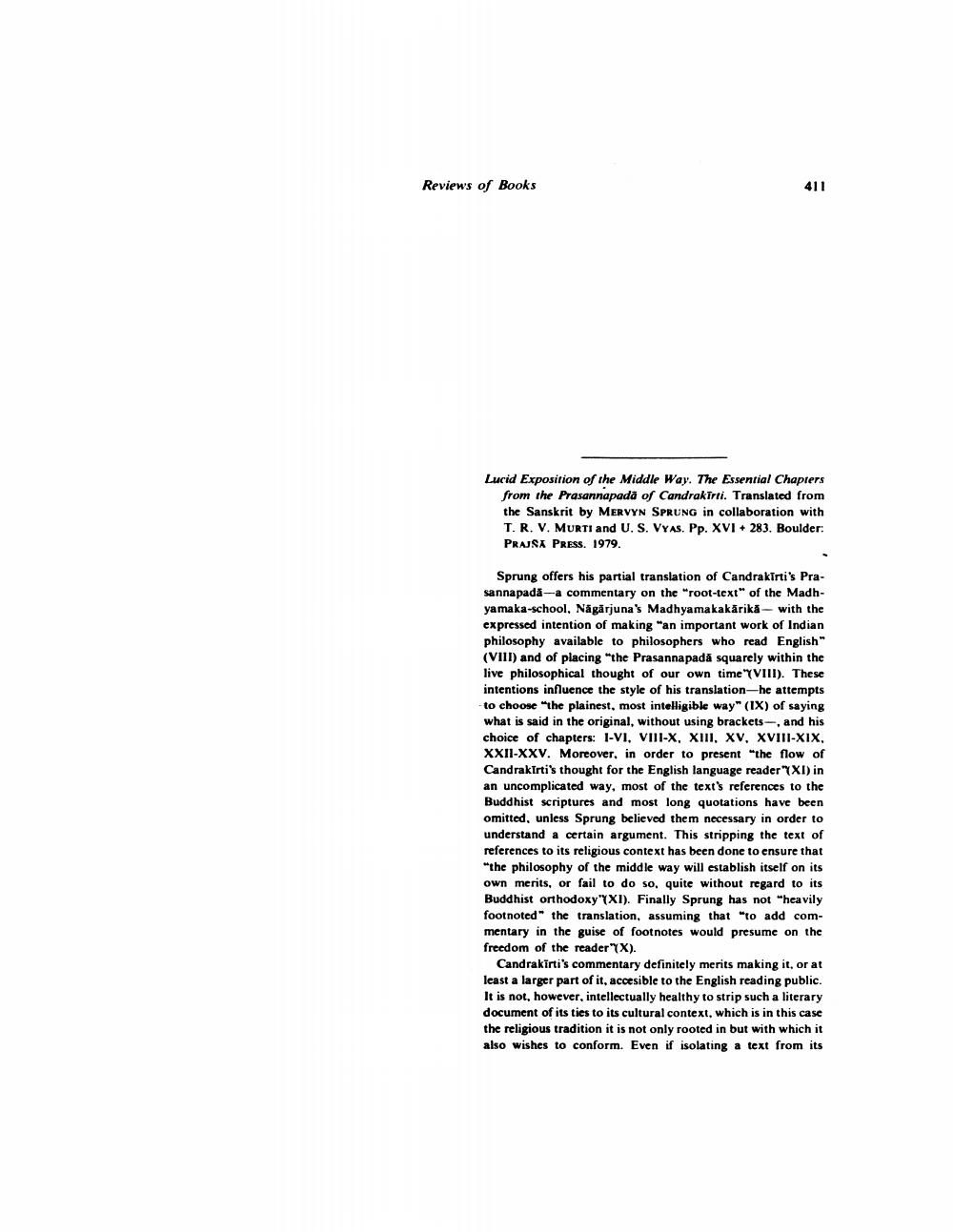________________
Reviews of Books
Lucid Exposition of the Middle Way. The Essential Chapters
from the Prasannapadă of Candrakirti. Translated from the Sanskrit by MERVYN SPRUNG in collaboration with T.R. V. MURTI and U. S. VYAS. Pp. XVI + 283. Boulder: PRAJSA PRESS. 1979.
Sprung offers his partial translation of Candrakirti's Prasannapadă-a commentary on the root-text of the Madhyamaka-school, Nagarjuna's Madhyamakakārika - with the expressed intention of making "an important work of Indian philosophy available to philosophers who read English (VIII) and of placing the Prasannapadă squarely within the live philosophical thought of our own time"YVIII). These intentions influence the style of his translation-he attempts to choose the plainest, most inteHigible way" (1X) of saying what is said in the original, without using brackets-, and his choice of chapters: I-VI, VIII-X, XIII, XV, XVIII-XIX, XXII-XXV. Moreover, in order to present the now of Candrakirti's thought for the English language reader"YXI) in an uncomplicated way, most of the text's references to the Buddhist scriptures and most long quotations have been omitted, unless Sprung believed them necessary in order to understand a certain argument. This stripping the text of references to its religious context has been done to ensure that
the philosophy of the middle way will establish itself on its own merits, or fail to do so. quite without regard to its Buddhist orthodoxy'YXI). Finally Sprung has not "heavily footnoted" the translation, assuming that to add commentary in the guise of footnotes would presume on the freedom of the reader"(X).
Candrakīrti's commentary definitely merits making it, or at least a larger part of it, accesible to the English reading public. It is not, however, intellectually healthy to strip such a literary document of its ties to its cultural context, which is in this case the religious tradition it is not only rooted in but with which it also wishes to conform. Even if isolating a text from its




